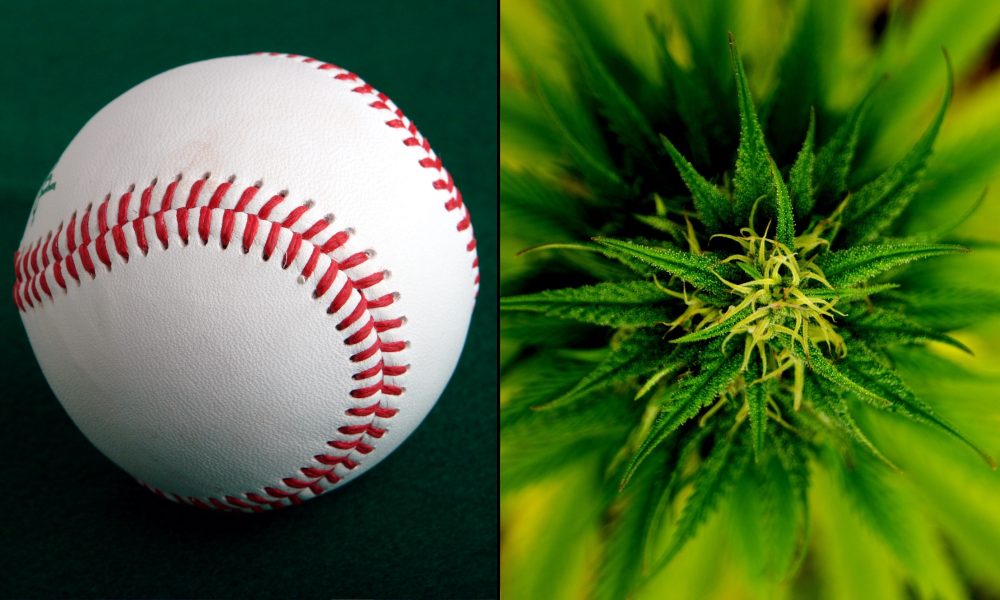The Chicago Cubs is the first Major League Baseball (MLB) team to officially partner with a CBD company.
While MLB announced its league-wide partnership with a popular CBD brand last year, this marks the first time an individual club has teamed up with a cannabis company.
The Cubs struck a deal with the CBD sparkling beverage brand MYND DRINKS, the team announced on Friday. The agreement means that the company’s products will be marketed in signage at at Wrigley Field and promoted through “several in-game features,” it said.
The league said last year that individual teams could start selling partnerships to cannabis companies. In order to do so, a prospective business’s products must be certified by NSF International, a consumer safety and product-testing organization that sports leagues use, and the club must also receive authorization from the MLB commissioner’s office.
“When MLB opened the CBD category for its clubs, it allowed us to explore new partnership opportunities and offerings,” Alex Seyferth, vice president of corporate partnerships at the Chicago Cubs, said in a press release. “We’re proud to be the first club to partner with a CBD company, but what was more important to us was making sure that the brand was the right fit.”
“MYND DRINKS is a Chicago-based company that promotes overall wellness and helps ease the stressors of everyday life, just like a Friday 1:20 game at Wrigley Field,” he said.
As part of the partnership launch, the Cubs are also releasing guided meditation on YouTube narrated by Cubs radio play-by-play announcer Pat Hughes.
The Cubs and @MyndDrinks are teaming up to help fans unwind.
Enjoy a guided meditation narrated by the legendary Pat Hughes: https://t.co/mJSqqNgUlL pic.twitter.com/vutH3kbbJO
— Chicago Cubs (@Cubs) April 7, 2023
The team also launched a “Sounds of Wrigley Field” playlist on Spotify.
MYND DRINKS CEO Simon Allen said that the company is “so thrilled and honored to announce our partnership with the legendary Chicago Cubs, and that they share our vision of health and wellness in major league sports.”
MLB has been among the more progressive professional sports organizations in the U.S. when it comes to marijuana.
It’s stood out among other professional sports leagues as more willing to respond to the changing marijuana policy landscape. For example, it clarified in a memo in 2020 that players will not be punished for using cannabis while they aren’t working, but they can’t be personally sponsored by a marijuana company or hold investments in the industry.
The league also said at the time that it was teaming with NSF International to analyze and certify legal, contaminant-free CBD products in order to allow teams to store them on club premises.
The update built upon MLB’s decision in 2019 to remove cannabis from the league’s list of banned substances. Before that rule change, players who tested positive for THC were referred to mandatory treatment, and failure to comply carried a fine of up to $35,000. That penalty is now gone.
The policies are the result of negotiations between MLB and its players union. Both parties agreed to approach the league’s drug policy with an emphasis on treatment rather than penalties. Players who test positive for opioids or cocaine, for example, will be penalized only if they refuse treatment.
A number of athletic governance bodies have recently relaxed rules around cannabinoids as laws change and medical applications become more widely accepted.
The National Basketball Association (NBA) has also generated headlines after it was reported last week that it was removing marijuana from its list of banned substances and would no longer drug test players for it as part of a new seven-year collective bargaining agreement.
The deal between NBA and the players’ union is also said include a policy allowing players to promote and invest in cannabis companies.
UFC announced in 2021 that they would no longer be punishing fighters over positive marijuana tests.
Separately, students athletes that are part of the NCAA would no longer automatically lose their eligibility to play following a positive marijuana test under rules that are were recommended by a key committee last year.
Meanwhile, the NFL’s drug testing policy already changed demonstrably in 2020 as part of a collective bargaining agreement.
NFL players no longer face the possibility of being suspended from games over positive tests for any drug—not just marijuana—under a collective bargaining agreement. Instead, they will face a fine. The threshold for what constitutes a positive THC test was also increased under the deal.
Marijuana icon Snoop Dogg, who was featured at the Super Bowl halftime show last year where an ad separately aired that indirectly supported legalization, argued that sports leagues need to stop testing players for marijuana and allow to them to use it as an alternative to prescription opioids.
Texas House Will Vote Next Week On Allowing Medical Marijuana As Opioid Alternative And Replacing THC Limit
Read the full article here









